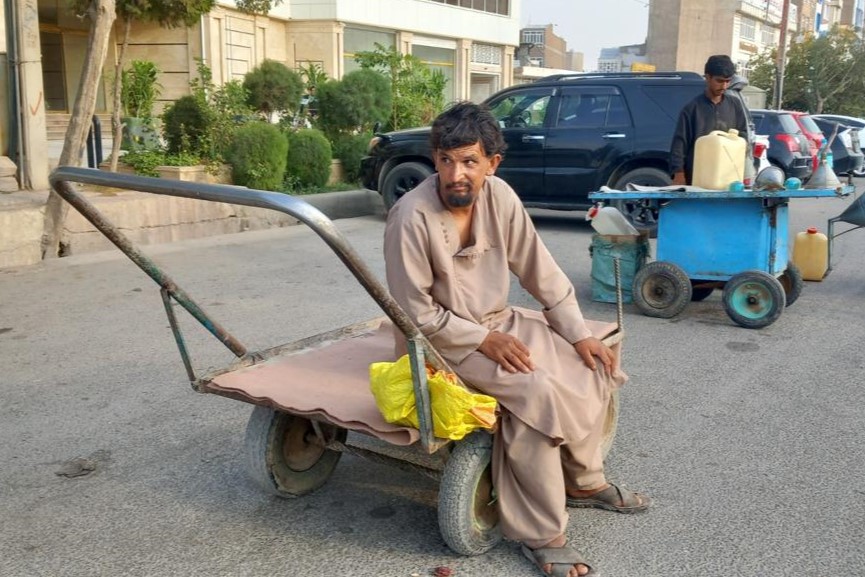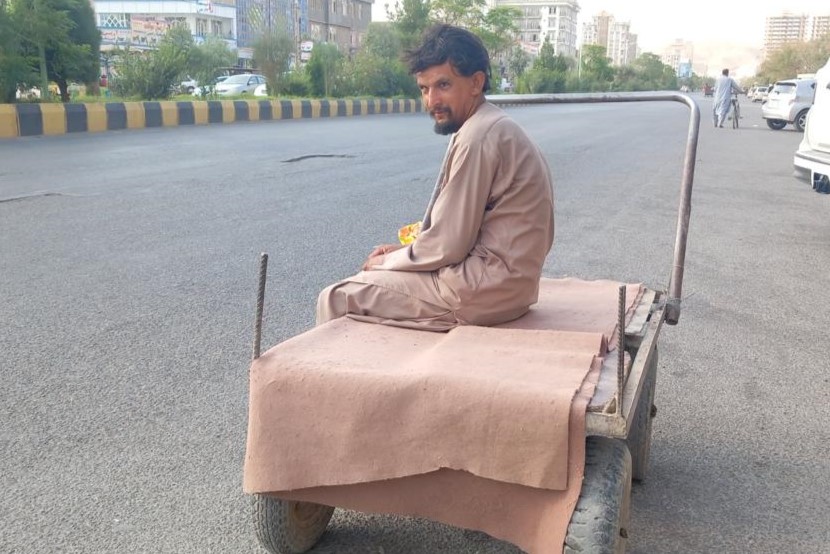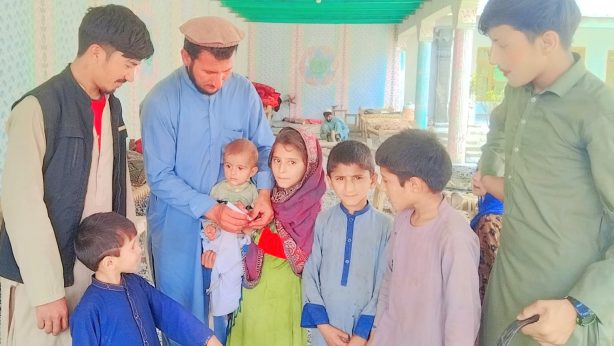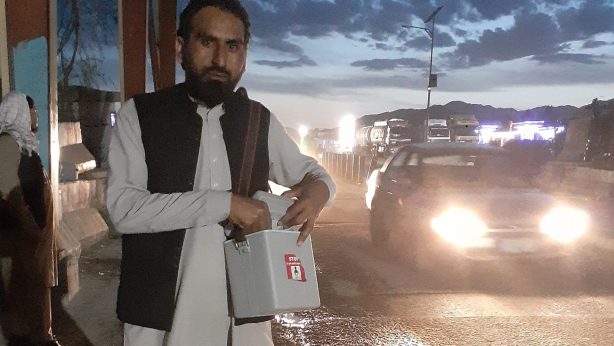How the Polio Vaccine Saved Abdul Rahim from Polio Three Decades Ago

Marzia Frotan
Herat, Afghanistan – 37-year-old Abdul Rahim, who works as a freight carrier in Herat city, regularly received the polio vaccine up to the age of five.
At that time, polio vaccination campaigns were less common in Herat than they are today, but his parents took him to a hospital to ensure he was vaccinated.
Abdul Rahim expresses gratitude that his parents took responsibility for his health by vaccinating him as a child.
“Thank God my parents vaccinated me as a child. If they hadn’t, I might have ended up like my uncle’s son or one of my friends who both of whom contracted polio and became disabled,” he said.
A father of six, Abdul Rahim added, “Had I contracted polio, I might not have had a wife or children today, because in our society, people often refrain from marrying off their daughters or sisters to individuals with disabilities.”
Regarding his uncle’s son and friend, he said, “Both my uncle’s son and a childhood friend, who are the same age as I am, contracted polio because they were not vaccinated as children. They’ve been paralyzed for nearly three decades now.”
He explained that they cannot work due to their polio-induced disability and spend most of their time at home, while he remains healthy and actively working, saved from paralysis by the polio vaccine.
Abdul Rahim calls on parents, emphasizing that their children’s health and bright future are their responsibility. He urges them to administer all childhood vaccinations to protect their children from infectious diseases like polio.
 37-year-old Abdul Rahim, who works as a freight carrier in Herat city, regularly received the polio vaccine up to the age of five © Polio Free Afghanistan/ 2024/ Marzia Frotan
37-year-old Abdul Rahim, who works as a freight carrier in Herat city, regularly received the polio vaccine up to the age of five © Polio Free Afghanistan/ 2024/ Marzia Frotan
The Background of the Polio Vaccine
The polio vaccine was developed in 1955, bringing a significant change in controlling the disease worldwide. However, Afghanistan and Pakistan are still fighting the virus.
there is a risk it could spread to other countries.
In its early years, the polio vaccine was only available in a few healthcare centers in Afghanistan, primarily supported by the United Nations, leaving many children in rural areas unvaccinated.
Around 30 years ago, polio vaccination campaigns began in all of Afghanistan, including Herat, but they faced challenges and obstacles.
Over the years, the vaccination coverage expanded, and today, over 90% of Afghan children are under coverage by these campaigns.
Children who miss these campaigns can still be vaccinated at hospitals and health centers.
Protecting Lives
During each campaign, two drops of the polio vaccine save children’s lives, protecting them from permanent paralysis.
Dr. Saif Rahman Karimi, a pediatrician in Herat, said, “Children who receive the polio vaccine regularly and consistently will never contract this disease.” He continued, “The polio virus is extremely dangerous and even deadly. Polio has no cure and permanently affects children’s lives. To prevent paralysis and secure their future, families are obligated to ensure that all children under five receive their vaccinations.”
He added that with today’s resources, no child should be deprived of vaccinations.
This year, positive cases of polio have been reported in the neighboring provinces of Helmand and Kandahar, raising concerns among the people of Herat.
As a result, polio vaccination campaigns in Herat have intensified, ensuring that all children in high-risk areas are vaccinated regularly.


